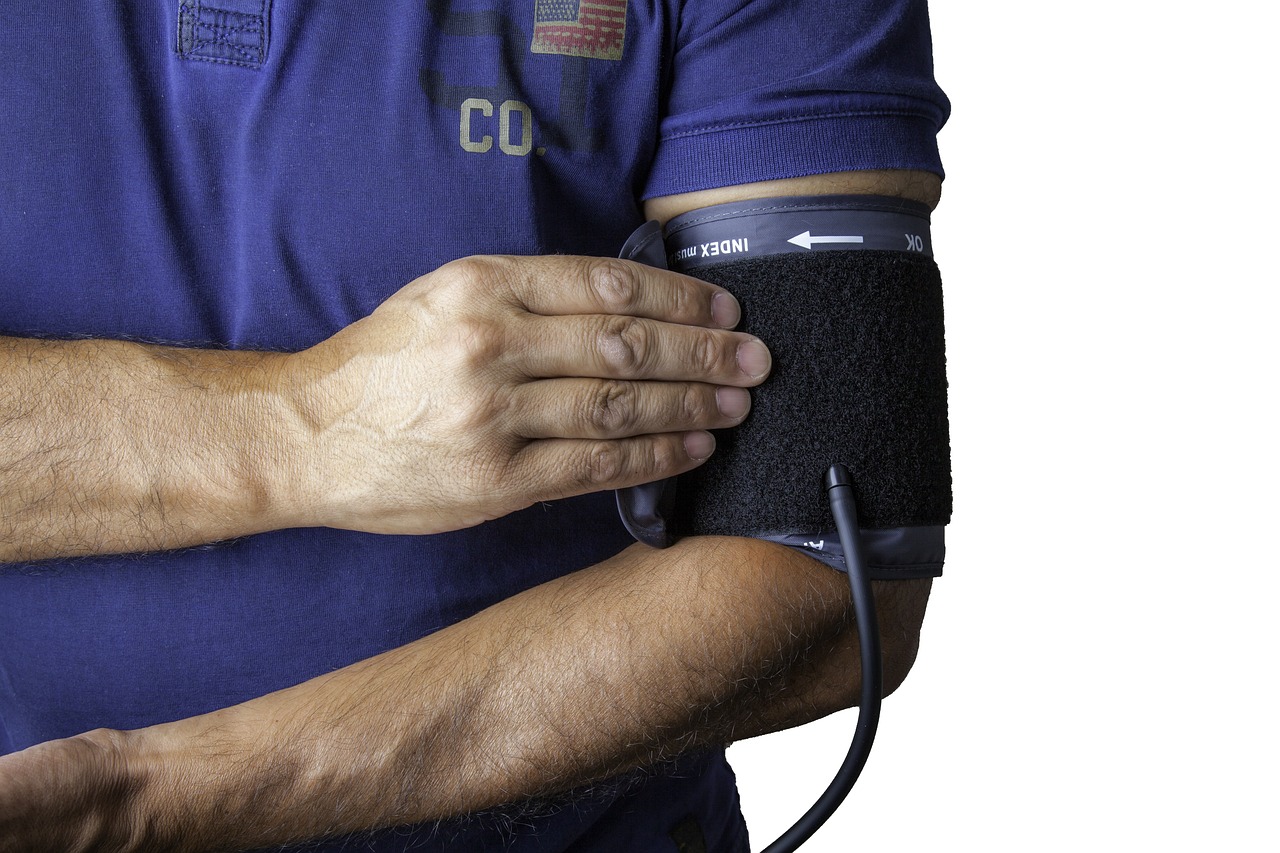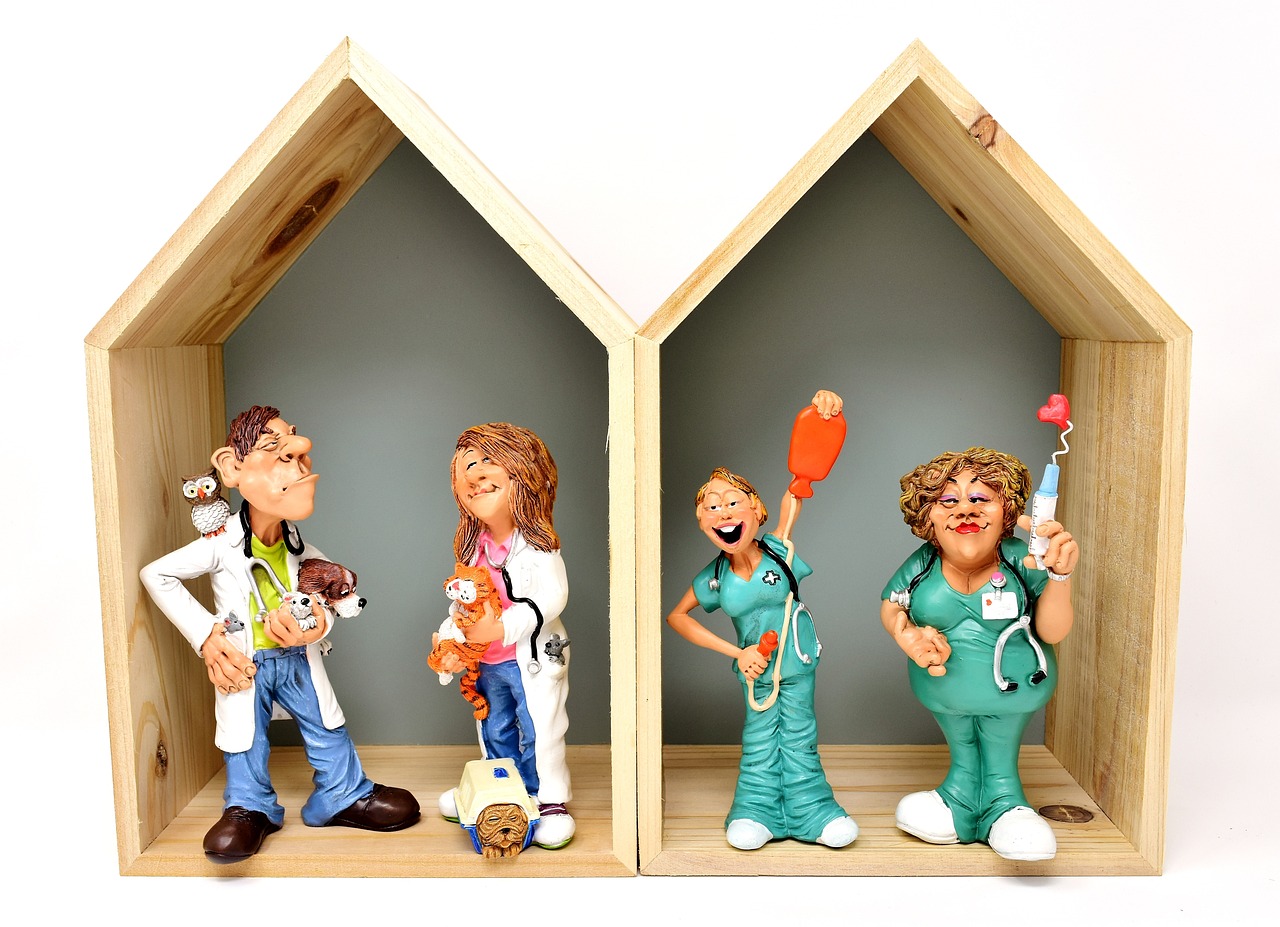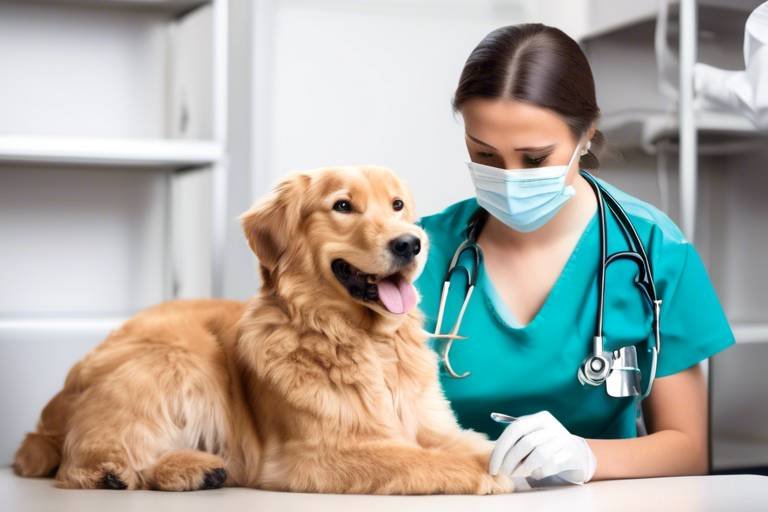The Importance of Regular Veterinary Check-Ups
As a loving pet owner, you want nothing but the best for your furry companions. One of the most crucial aspects of ensuring their well-being is through regular veterinary check-ups. These visits are not just a formality; they are an essential part of maintaining your pet's health and happiness. Imagine your pet as a car that needs regular servicing to run smoothly. Just like a mechanic checks for potential issues, a veterinarian performs thorough examinations to catch health problems before they escalate. In this article, we will delve into the critical role of these check-ups, the benefits they offer, and why they should be a priority in your pet care routine.
Veterinary check-ups are comprehensive assessments that allow veterinarians to evaluate your pet's overall health. During these visits, the vet will conduct a physical examination, check vital signs, and discuss any behavioral changes you may have noticed. This is not just a quick glance; it's a detailed investigation into your pet's well-being. Think of it as an annual physical for humans, where doctors look for signs of potential issues. By monitoring your pet’s condition regularly, veterinarians can identify potential health issues early and provide necessary vaccinations to keep your pet protected from diseases.
Regular check-ups are vital for your pet's long-term health. They serve as a proactive approach to pet care, allowing you to stay ahead of potential health issues. Here are some key benefits:
- Early Disease Detection: Routine examinations allow veterinarians to identify health problems before they become serious. This early intervention can lead to more effective treatment options and better outcomes for your pet.
- Vaccination Updates: Keeping your pet's vaccinations current is essential for their protection against infectious diseases.
- Owner Education: These visits provide an opportunity for pet owners to gain valuable insights into their pet's health needs.
One of the most significant advantages of regular veterinary check-ups is the ability to detect diseases early. Just like a tiny crack in a windshield can lead to a complete break if ignored, minor health issues can escalate into serious conditions if not addressed promptly. During these visits, vets can perform various tests and assessments that help identify issues such as:
- Dental Disease: Oral health is often overlooked but is crucial for overall health.
- Obesity: Weight management is vital, as obesity can lead to various health problems.
- Skin Conditions: Many pets suffer from allergies or skin issues that can be treated effectively if caught early.
Blood tests during check-ups can reveal underlying health issues that may not be immediately apparent. These tests provide essential information about your pet’s organ function and overall health status. For instance, a simple blood test can indicate liver or kidney issues, allowing for timely intervention. Think of it as a sneak peek into your pet's internal health, giving you and your vet a clearer picture of what’s going on.
Veterinary visits are crucial for keeping your pet's vaccinations current. Vaccines protect against various infectious diseases, ensuring your pet's health and preventing outbreaks in the community. Just as you wouldn't skip your flu shot, your pet also needs regular vaccinations to stay healthy. These visits not only keep your pet safe but also contribute to the overall health of the pet community.
Veterinarians also assess your pet's behavior during check-ups. Understanding behavioral changes can be vital in diagnosing physical or psychological issues that may affect your pet's well-being. For example, if your usually playful dog suddenly becomes withdrawn, it could be a sign of an underlying health issue. Regular visits help identify these changes early, allowing for timely intervention.
Regular visits help identify signs of stress or anxiety in pets. Just like humans, pets can experience mental health issues that affect their behavior and overall happiness. Addressing these issues early can lead to better behavioral outcomes and a more harmonious relationship between pets and their owners. A vet can provide strategies to help manage your pet's anxiety, ensuring they feel safe and secure.
Veterinarians can provide guidance on socialization techniques during check-ups. Proper socialization is essential for a pet's mental health and can prevent behavioral problems down the line. Think of it as teaching your pet how to navigate the world confidently, which is crucial for their happiness and well-being.
Veterinary check-ups are an opportunity for pet owners to gain knowledge about their pet's health needs. Vets can offer advice on nutrition, exercise, and preventive care tailored to your pet's specific requirements. Just like you would consult a nutritionist for your diet, your vet can help you understand what your pet needs to thrive. This education empowers you to make informed decisions that benefit your furry friend.
Q: How often should I take my pet to the vet?
A: It is generally recommended to take your pet for a check-up at least once a year, but puppies, kittens, and older pets may require more frequent visits.
Q: What should I expect during a check-up?
A: Expect a thorough physical examination, vaccination updates, and discussions about your pet's behavior and diet.
Q: Are regular check-ups really necessary?
A: Absolutely! Regular check-ups can catch potential health issues early, saving you and your pet from more serious problems down the line.

Understanding Veterinary Check-Ups
When we think about our furry companions, their health is often at the forefront of our minds. Veterinary check-ups are not just routine visits; they are essential for ensuring your pet's well-being. These appointments provide a comprehensive assessment of your pet's health status, allowing veterinarians to monitor changes over time and catch potential issues before they escalate. Just like we visit our doctors for regular health screenings, our pets need the same level of care and attention.
During a typical check-up, your veterinarian will conduct a variety of assessments. This includes checking vital signs, examining the skin and coat, evaluating dental health, and assessing weight. Each of these components plays a crucial role in understanding your pet's overall health. For instance, a sudden weight gain or loss might indicate an underlying health issue that needs to be addressed. Regular check-ups also allow for the administration of necessary vaccinations, keeping your pet protected against various diseases.
Furthermore, check-ups are an excellent opportunity for veterinarians to discuss your pet's diet and exercise routine. They can provide tailored advice based on your pet's age, breed, and lifestyle. This personalized approach ensures that your pet receives the appropriate nutrition and physical activity needed for optimal health. Remember, a well-nourished pet is a happy pet!
In addition to physical health assessments, veterinarians often evaluate your pet's behavior during these visits. Behavioral changes can signal health issues that may not be immediately visible. For example, if your usually playful dog suddenly becomes lethargic, this could be a sign of pain or discomfort. By understanding these behavioral shifts, veterinarians can diagnose and treat issues more effectively.
To sum it up, veterinary check-ups are a vital part of pet ownership. They allow for:
- Comprehensive health assessments
- Early detection of potential health issues
- Vaccination updates
- Behavioral evaluations
- Personalized health management advice
By prioritizing these visits, you're not just investing in your pet's immediate health; you're also paving the way for a longer, healthier life filled with joy and companionship.
1. How often should I take my pet for a check-up?
Most veterinarians recommend annual check-ups for healthy adult pets. However, senior pets or those with chronic health issues may need more frequent visits.
2. What should I expect during a veterinary check-up?
Expect a thorough examination that includes checking your pet's weight, heart rate, and overall condition. The vet may also discuss your pet's diet and behavior.
3. Are vaccinations included in the check-up?
Yes, vaccinations are typically administered during check-ups, ensuring your pet is protected against various diseases.
4. Can I ask my vet questions during the visit?
Absolutely! Your vet is there to help, so feel free to ask any questions regarding your pet's health and care.

Benefits of Routine Check-Ups
When it comes to our furry friends, we often think of them as family. Just like we schedule regular check-ups for ourselves, it's equally important to ensure our pets receive the same level of care. Regular veterinary check-ups are not just a formality; they are a critical component of maintaining your pet's health and happiness. These visits serve as a proactive measure to catch potential health problems before they escalate into serious issues, which can save both your pet's life and your wallet!
One of the most significant benefits of routine check-ups is the early detection of diseases. During these visits, veterinarians perform comprehensive assessments that can reveal underlying health conditions you might not notice at home. For example, conditions like diabetes or kidney disease can develop silently, and early intervention can make all the difference in treatment success. Imagine catching a problem early, like spotting a small crack in a windshield before it spreads into a full-blown shatter! That's the power of regular check-ups.
Another critical aspect of these visits is keeping your pet's vaccinations up to date. Vaccines are like armor for our pets, protecting them against a variety of infectious diseases that can be life-threatening. During check-ups, veterinarians can ensure that your pet is current on their vaccinations, providing peace of mind that they are shielded from potential outbreaks. For instance, vaccines for rabies, distemper, and parvovirus are essential and can prevent severe health issues down the line.
Moreover, routine check-ups offer an opportunity for pet owners to gain valuable insights into their pet's health management. Veterinarians can provide tailored advice on nutrition, exercise, and preventive care that suit your pet's specific needs. This personalized guidance can help you make informed decisions about your pet's diet and lifestyle, ensuring they live a long, healthy life. Think of it as having a personal trainer and nutritionist for your pet!
Additionally, these visits can help identify behavioral issues that may arise due to health problems. For example, if your pet suddenly becomes withdrawn or aggressive, it could be a sign of pain or discomfort. Regular check-ups allow veterinarians to assess your pet's behavior and provide you with tools and strategies to address any concerns. This proactive approach can foster a stronger bond between you and your pet, as you work together to improve their well-being.
In summary, the benefits of routine veterinary check-ups are multi-faceted and extend beyond just physical health. They play a vital role in preventing diseases, ensuring vaccinations are current, providing essential health management advice, and identifying behavioral issues. By committing to regular check-ups, you're not only investing in your pet's health but also enriching the quality of life you share together.
- How often should my pet have a check-up? - Generally, it's recommended to visit the vet at least once a year, but older pets or those with existing health issues may require more frequent visits.
- What should I expect during a routine check-up? - Expect a thorough examination, vaccinations updates, and discussions about your pet's diet, behavior, and any concerns you may have.
- Are check-ups expensive? - While there is a cost involved, the long-term savings from preventing serious health issues can outweigh the initial expense.
Early Disease Detection
This article highlights the critical role of regular veterinary visits in maintaining pet health, preventing diseases, and ensuring overall well-being. Discover the benefits and essential aspects of routine check-ups for your beloved animals.
Veterinary check-ups involve comprehensive assessments of your pet's health. These visits allow veterinarians to monitor your pet’s overall condition, identify potential health issues early, and provide necessary vaccinations.
Regular check-ups contribute significantly to your pet's long-term health. They help in early disease detection, keeping vaccinations up to date, and providing pet owners with valuable health management advice.
Routine examinations allow veterinarians to identify health problems before they become serious. Think of it like catching a small leak in your roof before it becomes a waterfall in your living room! This early intervention can lead to more effective treatment options and better outcomes for your pet. By regularly visiting the vet, you are giving your furry friend the best chance at a long, healthy life.
During these check-ups, veterinarians conduct thorough physical exams and may recommend diagnostic tests. Here are some common health issues that can be detected early:
- Dental Disease: Plaque and tartar buildup can lead to painful dental issues if not addressed.
- Obesity: Regular weigh-ins can help monitor your pet's weight and prevent obesity-related diseases.
- Skin Conditions: Early detection of skin problems can prevent infections and discomfort.
Addressing these problems early can prevent complications and improve your pet’s quality of life. Additionally, blood tests during check-ups can reveal underlying health issues that may not be immediately apparent. These tests provide essential information about your pet’s organ function and overall health status, acting as a window into their internal well-being.
Veterinary visits are crucial for keeping your pet's vaccinations current. Vaccines protect against various infectious diseases, ensuring your pet's health and preventing outbreaks in the community.
Veterinarians also assess your pet's behavior during check-ups. Understanding behavioral changes can be vital in diagnosing physical or psychological issues that may affect your pet's well-being.
Regular visits help identify signs of stress or anxiety in pets. Addressing these issues early can lead to better behavioral outcomes and a more harmonious relationship between pets and their owners.
Veterinarians can provide guidance on socialization techniques during check-ups. Proper socialization is essential for a pet's mental health and can prevent behavioral problems down the line.
Veterinary check-ups are an opportunity for pet owners to gain knowledge about their pet's health needs. Vets can offer advice on nutrition, exercise, and preventive care tailored to your pet's specific requirements.
Q: How often should I take my pet for a check-up?
A: It's generally recommended to take your pet for a check-up at least once a year, but older pets or those with health issues may need more frequent visits.
Q: What should I expect during a veterinary check-up?
A: During a check-up, the vet will perform a physical examination, discuss your pet's health history, and may recommend vaccinations or diagnostic tests as needed.
Q: Are check-ups expensive?
A: The cost of a check-up can vary based on location and services provided, but regular visits can save money in the long run by preventing serious health issues.
Q: Can I ask my vet questions during the visit?
A: Absolutely! Your vet is there to help and educate you about your pet's health, so feel free to ask any questions you may have.
Common Issues Detected
During routine veterinary check-ups, veterinarians have the opportunity to catch a variety of common health issues that might go unnoticed by pet owners. These assessments are not just a formality; they play a crucial role in ensuring your furry friend remains healthy and happy. For instance, dental disease is a prevalent concern that can lead to serious complications if left untreated. Regular check-ups allow vets to examine your pet's teeth and gums, providing necessary cleanings or treatments to prevent painful conditions.
Another issue that is frequently identified during these visits is obesity. With the increasing trend of pet obesity, it’s essential for pet owners to be aware of their pet's weight. During a check-up, veterinarians can assess your pet's body condition score and recommend dietary changes or exercise plans to help maintain a healthy weight. Obesity can lead to a host of other health problems, including diabetes and joint issues, so early detection is vital.
Additionally, skin conditions such as allergies or infections are often discovered during these examinations. Pets may not always show visible signs of discomfort, but a vet's trained eye can spot abnormalities in the skin or coat that indicate underlying problems. Addressing these skin issues early can prevent more severe complications down the line, ensuring your pet remains comfortable and free from irritation.
In summary, these common issues—dental disease, obesity, and skin conditions—are just a few examples of what can be detected during routine veterinary visits. By being proactive and scheduling regular check-ups, you can help your pet avoid serious health concerns and enjoy a better quality of life. Remember, prevention is always better than cure!
- How often should I take my pet for a check-up? It's generally recommended to visit the vet at least once a year, but older pets or those with chronic conditions may require more frequent visits.
- What should I expect during a veterinary check-up? A typical check-up includes a physical examination, vaccination updates, and discussions about your pet's diet and behavior.
- Are vaccinations necessary for indoor pets? Yes, even indoor pets are at risk for certain diseases, so keeping vaccinations up to date is crucial.
- Can I ask my vet about behavioral issues during the check-up? Absolutely! Discussing any behavioral concerns is encouraged, as it can help in diagnosing potential problems.
Importance of Blood Tests
When it comes to your pet's health, blood tests are like a crystal ball, offering a glimpse into what’s going on beneath the surface. These tests are not just a routine part of a veterinary check-up; they are an essential tool that can reveal underlying health issues that might not be immediately visible during a physical examination. Imagine being able to detect a problem before it becomes a serious illness—this is the power of regular blood testing.
Blood tests can provide a wealth of information about your pet's overall health, including:
- Organ Function: Blood tests can assess how well your pet's organs, such as the liver and kidneys, are functioning. This is crucial because many organ issues can develop silently over time.
- Blood Cell Counts: These tests can identify anemia or infections by measuring the levels of different blood cells. A low red blood cell count can signal a host of issues, from nutritional deficiencies to more serious conditions.
- Electrolyte Levels: Maintaining the right balance of electrolytes is vital for your pet’s health. Blood tests can help monitor these levels, ensuring that your pet stays hydrated and healthy.
Furthermore, blood tests can also help in monitoring chronic conditions. For example, if your pet has been diagnosed with diabetes, regular blood tests can help track their glucose levels, allowing for timely adjustments in their treatment plan. This proactive approach can significantly improve your pet's quality of life and longevity.
In addition to these benefits, blood tests can be tailored to meet the specific needs of your pet. Depending on their age, breed, and health history, your veterinarian might recommend a specific panel of tests to get the most relevant information. This personalized approach ensures that your furry friend receives the best possible care.
So, the next time you take your pet in for a check-up, consider the importance of blood tests as part of their routine care. They are not just a precaution; they are a vital part of keeping your pet healthy and happy for years to come.
Vaccination Updates
When it comes to your pet's health, keeping their vaccinations up to date is absolutely crucial. Think of vaccinations as a shield, protecting your furry friend from various infectious diseases that could potentially lead to serious health issues. Regular veterinary visits are the perfect opportunity to ensure that your pet's vaccination schedule is on track. Just like how we humans need booster shots to maintain immunity, pets require periodic updates to their vaccinations to stay protected against illnesses.
During a routine check-up, your veterinarian will review your pet's vaccination history and determine what shots are necessary based on their age, lifestyle, and health status. For instance, if your dog loves to romp around in the park or your cat has outdoor access, they may need specific vaccines to shield them from diseases prevalent in those environments. Vaccination not only safeguards your pet but also helps in preventing outbreaks in the community, creating a healthier environment for all animals.
Here’s a quick rundown of some common vaccinations for pets:
| Pet Type | Common Vaccinations | Frequency |
|---|---|---|
| Dogs | Rabies, Distemper, Parvovirus, Bordetella | Annually or as recommended |
| Cats | Rabies, Feline Viral Rhinotracheitis, Feline Calicivirus, Feline Panleukopenia | Annually or as recommended |
It's essential to discuss any concerns you might have about vaccinations with your vet. They can provide tailored recommendations based on your pet's unique needs. Additionally, if your pet has had any adverse reactions to vaccines in the past, be sure to inform your veterinarian. This information is vital for ensuring your pet's safety and well-being.
Remember, staying proactive about your pet’s vaccinations is not just about compliance; it's about taking charge of their health and happiness. A well-vaccinated pet is a happy pet, and regular veterinary visits are your best bet for keeping that tail wagging and those purrs coming!
- How often should my pet be vaccinated? - Generally, pets should receive vaccinations annually, but this can vary based on the type of vaccine and your pet's health. Always consult your veterinarian for specific recommendations.
- Are there any risks associated with vaccinations? - While most pets tolerate vaccinations well, some may experience mild side effects such as soreness at the injection site or a slight fever. Serious reactions are rare but should be discussed with your vet.
- Can vaccinations be given during a regular check-up? - Yes! Routine check-ups are a great time for your pet to receive their vaccinations, ensuring they stay up to date on their health needs.

Behavioral Assessments
When it comes to our furry friends, their behavior can often be a window into their overall health. During veterinary check-ups, veterinarians take the time to assess your pet's behavior, which can be crucial for identifying underlying physical or psychological issues. Just like how a child might act out when they're not feeling well, your pet's behavior can provide essential clues about their emotional and physical state. This is why regular check-ups are not just about physical health; they are also about understanding the mental well-being of your beloved animal.
One of the key aspects of behavioral assessments is identifying signs of stress or anxiety. Pets are masters at hiding their discomfort, but subtle changes in their behavior can indicate that something is off. For instance, if your dog suddenly becomes more aggressive or your cat starts hiding more than usual, these could be signs that they are facing stress or anxiety. Early detection of these behavioral changes is vital, as it allows for timely interventions that can improve your pet's quality of life and strengthen the bond between you and your furry companion.
Veterinarians can also offer valuable socialization tips during these check-ups. Proper socialization is essential for a pet's mental health, especially for puppies and kittens. It helps them learn how to interact with other animals and humans, reducing the likelihood of behavioral problems down the road. For example, a well-socialized dog is less likely to exhibit fear or aggression towards strangers or other dogs. During your visit, your vet may suggest ways to expose your pet to new experiences and environments in a safe and controlled manner.
Moreover, behavioral assessments can help identify potential triggers for negative behaviors. For instance, if a pet shows signs of aggression towards certain situations, such as loud noises or unfamiliar visitors, your veterinarian can help you develop a plan to manage these triggers effectively. This may involve training techniques, environmental adjustments, or even behavioral therapies. Remember, understanding your pet's behavior is not just about correcting problems; it's about enhancing their overall well-being and happiness.
In summary, behavioral assessments during veterinary check-ups provide a comprehensive look at your pet's mental health. By paying attention to behavioral changes, identifying signs of stress, and implementing socialization strategies, you can ensure that your pet leads a happy and fulfilling life. After all, a healthy pet is a happy pet, and that happiness is reflected in their behavior!
- How often should I take my pet for a check-up? It's generally recommended to have your pet checked at least once a year, but older pets or those with health issues may require more frequent visits.
- What should I expect during a behavioral assessment? Your vet will observe your pet's behavior, ask questions about any changes you've noticed, and may conduct specific tests to evaluate your pet's mental health.
- Can behavioral issues be treated? Yes! Many behavioral issues can be managed with training, environmental changes, and sometimes medication, depending on the severity.
Identifying Stress or Anxiety
Just like us, our furry friends can experience stress or anxiety. As a pet owner, it's crucial to recognize the signs of these emotional states, as they can significantly impact your pet's health and happiness. Imagine coming home to a dog that used to greet you with wagging tails and excited barks, only to find them hiding under the bed or acting unusually aggressive. It’s heartbreaking, isn’t it? This is why regular veterinary check-ups are essential; they provide an opportunity to discuss any behavioral changes you may have noticed with your vet.
Veterinarians are trained to identify subtle signs of stress or anxiety that may not be obvious to the untrained eye. During your pet's check-up, the vet will observe their behavior and may ask you questions about their daily routines. Some common indicators of stress or anxiety in pets include:
- Excessive barking or meowing
- Destructive behavior, such as chewing furniture or scratching at doors
- Changes in appetite or weight
- Withdrawal from social interaction or play
- Pacing or restlessness
Understanding these signs is the first step in addressing your pet’s emotional needs. If your veterinarian identifies stress or anxiety, they can offer tailored solutions to help alleviate these issues. This might include behavioral therapies, environmental modifications, or even medication in severe cases. Think of it as a team effort between you and your vet to ensure your pet's mental well-being.
Moreover, your vet can provide you with socialization tips during these check-ups. Socialization is crucial for a pet’s mental health, and it can prevent behavioral problems down the line. For example, introducing your pet to new environments, people, and other animals can help them become more adaptable and less anxious. Just like humans, pets thrive on positive experiences, and your veterinarian can guide you on how to create a supportive environment for your furry friend.
In conclusion, identifying stress or anxiety in pets is not just about observing their behavior; it’s about understanding their emotional landscape. Regular veterinary check-ups are vital in this process, providing you with the tools and knowledge to ensure your pet lives a happy, healthy life.
Q: How often should I take my pet for a check-up?
A: It is generally recommended to take your pet for a check-up at least once a year. However, older pets or those with health issues may require more frequent visits.
Q: What should I expect during a veterinary check-up?
A: During a check-up, the vet will perform a physical examination, discuss your pet's health history, update vaccinations, and may recommend tests such as blood work.
Q: Can I prevent anxiety in my pet?
A: Yes, socialization, routine, and positive reinforcement can help prevent anxiety. Consult with your veterinarian for tailored advice based on your pet's specific needs.
Q: What are the signs that my pet is stressed?
A: Signs of stress in pets can include excessive barking, destructive behavior, changes in appetite, withdrawal, and restlessness.
Socialization Tips
This article highlights the critical role of regular veterinary visits in maintaining pet health, preventing diseases, and ensuring overall well-being. Discover the benefits and essential aspects of routine check-ups for your beloved animals.
Veterinary check-ups involve comprehensive assessments of your pet's health. These visits allow veterinarians to monitor your pet’s overall condition, identify potential health issues early, and provide necessary vaccinations.
Regular check-ups contribute significantly to your pet's long-term health. They help in early disease detection, keeping vaccinations up to date, and providing pet owners with valuable health management advice.
Routine examinations allow veterinarians to identify health problems before they become serious. This early intervention can lead to more effective treatment options and better outcomes for your pet.
During check-ups, vets can spot common health issues such as dental disease, obesity, and skin conditions. Addressing these problems early can prevent complications and improve your pet’s quality of life.
Blood tests during check-ups can reveal underlying health issues that may not be immediately apparent. These tests provide essential information about your pet’s organ function and overall health status.
Veterinary visits are crucial for keeping your pet's vaccinations current. Vaccines protect against various infectious diseases, ensuring your pet's health and preventing outbreaks in the community.
Veterinarians also assess your pet's behavior during check-ups. Understanding behavioral changes can be vital in diagnosing physical or psychological issues that may affect your pet's well-being.
Regular visits help identify signs of stress or anxiety in pets. Addressing these issues early can lead to better behavioral outcomes and a more harmonious relationship between pets and their owners.
Socialization is a crucial aspect of a pet's development and overall well-being. Just like humans, pets thrive when they are exposed to different environments, people, and other animals. During veterinary check-ups, your vet can provide valuable insights on how to effectively socialize your furry friend. Here are a few tips to consider:
- Start Early: If you have a puppy or kitten, begin socializing them as soon as they are vaccinated. The critical period for socialization is between 3 and 14 weeks of age.
- Positive Experiences: Ensure that new experiences are positive. Use treats and praise to create a positive association with new environments, sounds, and other pets.
- Gradual Exposure: Introduce your pet to various situations gradually. Overwhelming them can lead to fear and anxiety.
- Regular Outings: Take your pet on regular outings to parks, pet-friendly stores, or even to friends' houses. This helps them adapt to different settings.
- Obedience Training: Enroll your pet in obedience classes. These classes not only teach good manners but also provide socialization opportunities with other pets.
By following these tips, you can help ensure that your pet grows up to be well-adjusted and confident. Remember, socialization is an ongoing process, and regular check-ups can help you track your pet's progress and adjust your approach as necessary.
Veterinary check-ups are an opportunity for pet owners to gain knowledge about their pet's health needs. Vets can offer advice on nutrition, exercise, and preventive care tailored to your pet's specific requirements.
Q: How often should I take my pet for a check-up?
A: Generally, it is recommended to take your pet for a check-up at least once a year. However, older pets or those with health issues may require more frequent visits.
Q: What should I expect during a veterinary check-up?
A: During a check-up, the vet will conduct a physical examination, discuss your pet's health history, and may recommend vaccinations or tests based on your pet's needs.
Q: Are vaccinations really necessary?
A: Yes, vaccinations are crucial for preventing serious diseases and protecting your pet's health as well as the health of other animals in the community.
Q: How can I prepare my pet for a vet visit?
A: To prepare your pet, try to keep them calm and comfortable. Bring along their favorite toy or blanket, and ensure they are leashed or secured in a carrier.

Owner Education
Veterinary check-ups are not just about ensuring your pet is healthy; they also serve as a golden opportunity for pet owners to become better informed about their furry friends' needs. During these visits, veterinarians can share invaluable insights on various aspects of pet care, tailored specifically to your animal's lifestyle and health requirements. Think of it as a mini-seminar on pet wellness, where you can ask questions and gain knowledge that can make a significant difference in your pet's life.
For instance, during a routine check-up, a vet might discuss the importance of nutrition. Just like humans, pets require a balanced diet to thrive. Your vet can recommend the best food options based on your pet's age, breed, and health condition. They can also provide guidance on portion sizes to prevent obesity, which is increasingly becoming a concern for many pet owners. Remember, what might seem like a harmless treat can sometimes lead to serious health issues!
Moreover, exercise is another critical topic that comes up during these check-ups. Vets can help you understand how much physical activity your pet needs and suggest fun ways to keep them active. Whether it’s through daily walks, interactive play, or even agility training, keeping your pet physically engaged is essential for their mental and physical health.
Additionally, preventive care is a hot topic during vet visits. Your veterinarian can explain the importance of regular dental cleanings, parasite prevention, and even grooming. Each of these elements plays a role in your pet's overall health and can help avoid costly medical treatments down the road. It's like having a roadmap to ensure your pet stays on the right track!
Furthermore, many pet owners are unaware of the various behavioral issues that can arise due to lack of training or socialization. During check-ups, vets can offer advice on how to address these concerns effectively. This could include tips on obedience training or socialization techniques that can help your pet interact better with other animals and humans.
In essence, the education you receive during a veterinary check-up is multi-faceted. It covers everything from diet and exercise to behavioral management and preventive care. By actively engaging with your veterinarian, you can ensure that you are not just a pet owner, but a well-informed advocate for your pet's health and happiness.
- How often should I take my pet for a check-up? It is generally recommended to visit the vet at least once a year, but older pets or those with existing health issues may require more frequent visits.
- What should I expect during a veterinary check-up? During a check-up, the vet will conduct a physical examination, check vaccinations, discuss any health concerns, and may recommend tests or treatments.
- Can I ask my vet questions during the visit? Absolutely! Your vet is there to help you understand your pet's health and well-being, so don’t hesitate to ask questions.
- What if my pet is nervous about going to the vet? Talk to your vet about your pet's anxiety. They can provide tips on how to make the visit less stressful.
Frequently Asked Questions
- How often should I take my pet for a veterinary check-up?
It's generally recommended to take your pet for a check-up at least once a year. However, if your pet is older or has existing health issues, more frequent visits may be necessary. Just like us, pets benefit from regular health assessments!
- What happens during a veterinary check-up?
During a check-up, your veterinarian will conduct a thorough examination of your pet, which includes checking their weight, heart rate, and overall physical condition. They may also recommend vaccinations and perform blood tests to assess your pet's health status.
- Why are vaccinations important for my pet?
Vaccinations are crucial as they protect your pet from various infectious diseases. Keeping your pet's vaccinations up to date not only safeguards their health but also helps prevent outbreaks in the community, ensuring a safer environment for everyone.
- What common health issues can be detected during a check-up?
Vets can identify several common health issues during check-ups, such as dental disease, obesity, skin conditions, and more. Early detection of these problems can lead to better treatment options and improved quality of life for your furry friend.
- How can I help my pet feel less anxious during visits?
To help reduce your pet's anxiety during vet visits, try to make the experience positive. Bring treats, speak softly, and consider familiarizing your pet with the clinic beforehand. A calm and reassuring presence can make a world of difference!
- What role does owner education play in veterinary visits?
Owner education is a vital part of veterinary check-ups. Vets can provide tailored advice on nutrition, exercise, and preventive care, helping you make informed decisions about your pet's health and well-being.
- Can I ask my vet about behavioral issues during check-ups?
Absolutely! Discussing your pet's behavior with your vet is important. They can help identify signs of stress or anxiety and offer tips on socialization and training, ensuring your pet leads a happy and balanced life.



















